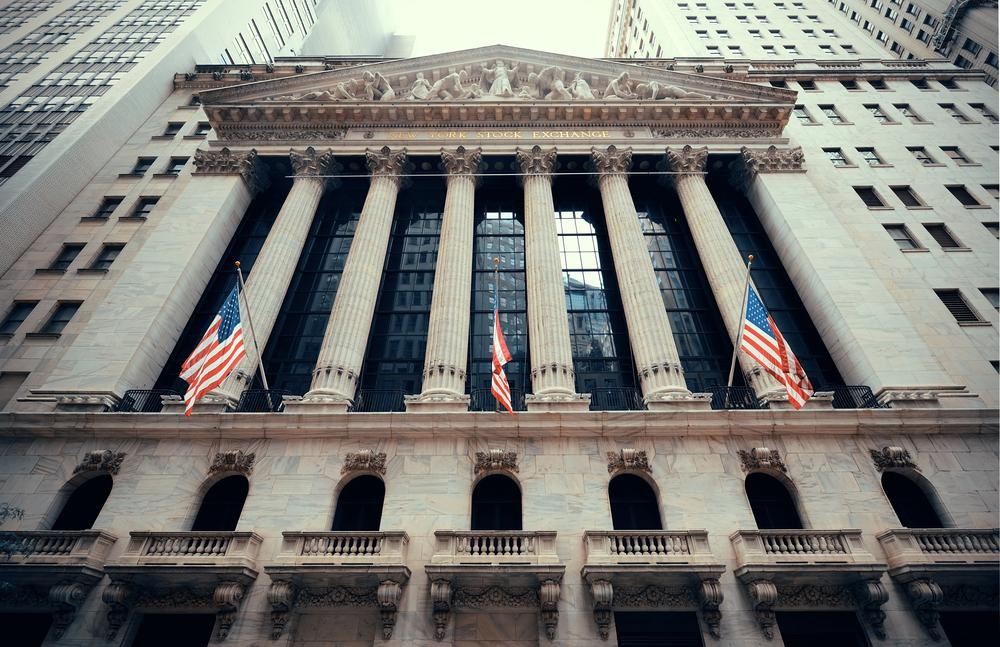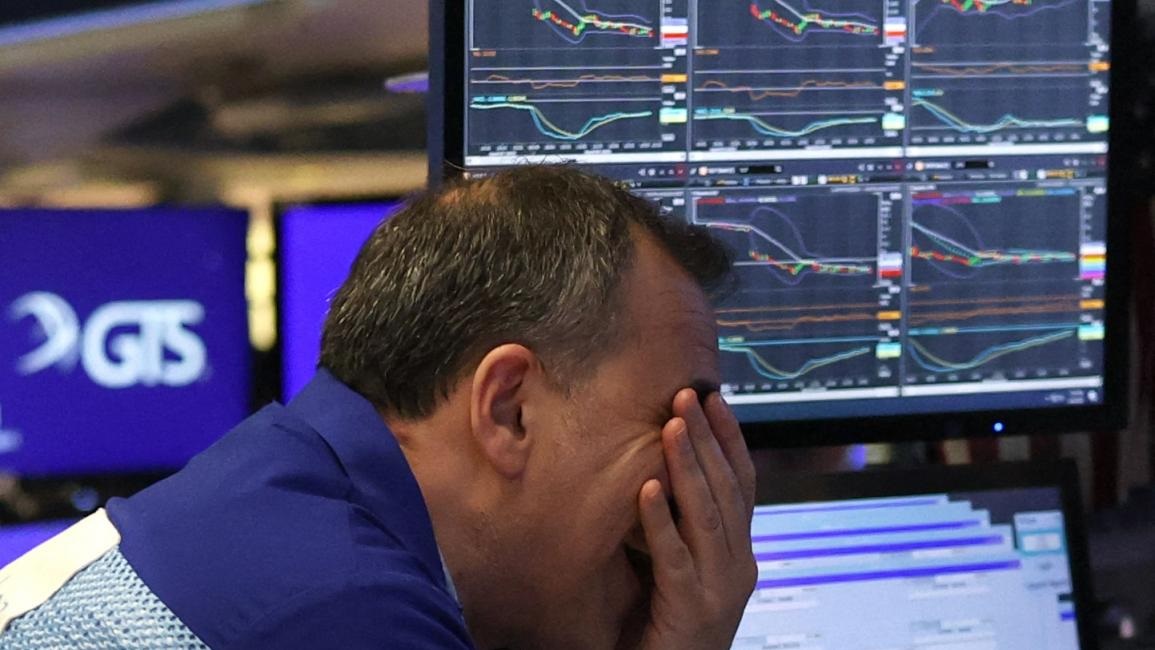Watan-Global stock markets have suffered massive losses due to U.S. tariffs. Over the course of three days—Thursday, Friday, and Monday—global financial markets lost $9.5 trillion.
On Monday, markets deepened their losses and moved toward collapse amid a wave of panicked selling, as U.S. President Donald Trump insisted on continuing his tariff policy.
These figures were revealed as the “Magnificent Seven” stocks on Wall Street tumbled on Monday, with the biggest tech companies losing nearly $2 trillion in total market value. Investor concerns are growing over the financial consequences of a global tariff war initiated by Trump. The “Magnificent Seven” include Apple, Microsoft, Nvidia, Alphabet (Google’s parent company), Meta Platforms (Facebook’s parent), Amazon, and Tesla.

Apple and Tesla Hit Hard by Tariff Fallout
The latest drop followed a move by Dan Ives—one of Wall Street’s most optimistic tech analysts—to lower his price targets for Apple and Tesla stocks, warning of an “economic disaster due to tariffs.”
This downgrade came as Trump raised tariffs and urged investors to bear the consequences. He also ruled out trade talks with China for now.
Tesla shares plummeted by 7% to $223, marking the biggest loss among the Magnificent Seven. These companies have collectively lost over $6 trillion in market value since their peak in late 2024. Apple, Alphabet, and Microsoft shares all hit their lowest levels in a year. Apple stock fell 4.8%, while other Magnificent Seven stocks dropped between 1.5% and 4.8%. These companies represented a significant portion of the over $5 trillion in losses seen in the S&P 500 over the past two trading sessions.
Dan Ives, an analyst at Wedbush, said Apple is the most affected by tariffs on goods imported from China, as most iPhones are assembled there.
He added that the trade war would increase the challenges facing Tesla, including a controversy triggered by CEO Elon Musk’s support for Trump and far-right policies in Europe.
These warnings reinforce growing fears that tariffs could hurt profit margins and disrupt supply chains at a time when many tech companies are under scrutiny for their massive AI spending.
Tariffs Spark Panic as Markets Bleed Trillions
Apple received tariff exemptions during Trump’s first term, but analysts are unsure whether it will get similar exemptions this time—even though the company has announced $500 billion in U.S. investments over the next four years. As for Tesla, Ives noted that the trade tensions might push Chinese buyers toward local competitors like BYD.
Panic selling continued in financial markets on Monday, as anxious investors gave up hope that Trump would change his tariff strategy. Stock values dropped over three days by about $9.5 trillion globally. Futures on the S&P 500 indicated a 3% loss, while the VIX index climbed above 50. Europe’s Stoxx 600 fell 5%, and Asia experienced its worst trading day since 2008. Meanwhile, investors turned to safe havens like U.S. Treasury bonds and the yen.
Traders increased their expectations that the Federal Reserve would cut interest rates this year, pricing in the equivalent of five quarter-point moves. Swap contracts even reflected a 40% chance of an emergency rate cut by next week—well ahead of the Fed’s May meeting.
Trump’s determination over the weekend to press ahead with tariffs—despite warnings from top economists about a recession and criticism from hedge fund managers like supporter Bill Ackman—reinforced the sense that the president is unlikely to change course. Speaking aboard Air Force One on Sunday, Trump urged reporters to “ignore the markets for a moment,” brushing off the selloff sweeping Wall Street.
Stefan Kemper, chief investment strategist at BNP Paribas Wealth Management, said: “It looks like the market is moving to sell first and ask questions later.” He added, “The market is looking for a breaking point where either the Trump administration or the Fed starts to pull back.”
